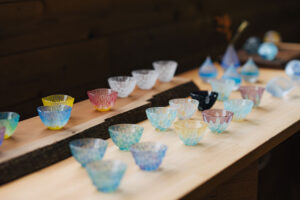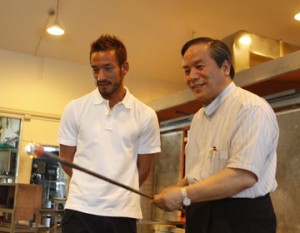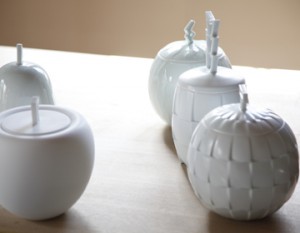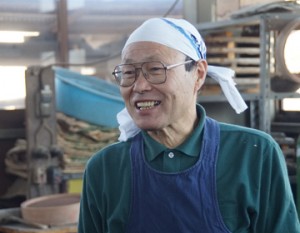Fewer and Fewer Glass Blowing Workshops Today
In the 1950s, there were more than 50 glass studios in Tokyo. One of them is Tajima Glass, established in 1956 in Edogawa Ward, Tokyo.
Tajima Glass Co., Ltd. is a workshop that handles “Edo glass,” which has been handed down since the Edo period (1603-1868). Edo glass is handmade using traditional techniques from the Edo period (1603-1868), and when it is faceted, it becomes Edo faceted glass.
Edo faceting is so famous that it is now designated as a “traditional craft” by the national government, making it highly valuable to preserve for the future.
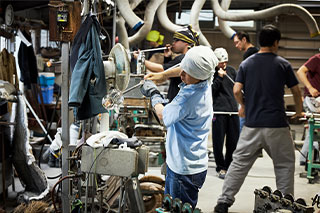
Fuji glass” that triggered its popularity
My grandfather, who was a watchman, started his own business. He started by renting a workshop at first. In the old days, coal was indispensable for glass production, so many workshops were built along riverside areas where it was convenient to transport coal,” says President Daisuke Tajima.
When we visited the workshop, we found many craftsmen sweating and blowing glass in the old-fashioned kiln. The company continues to produce traditional Edo faceted glass, but it is the “Fujiyama Series” in the shape of Mount Fuji that has made Tajima Glass Co. The company’s beer glasses, sake cups, rocks glasses, and other drinking glasses are popular as souvenirs among foreigners.
Fuji was registered as a World Heritage site, the hotel asked us to make some glasses for them. Fuji was registered as a World Heritage site. At first, we made beer glasses, and they were such a hit that we made a series of them. Thanks to your support, we are now in such a state that we can’t keep up with production.
In this way, the company is not limited to traditional Edo faceted glass, but is also focusing on glasses that are fashionable for everyday use in the shape of Mt.

Evolving the quality of glass and bringing it into the modern age
The showroom displays a variety of glassware, from traditional Edo faceted glass to custom-made products. The ability to respond to a wide range of orders is one of the strengths of Tajima Glass, which makes its products by hand.
Tajima Glass is able to meet a wide range of orders, which is one of the strengths of the company. I believe that we must protect this technology, even in these difficult times for glass,” he said emphatically.
His passionate wish for more people to be able to easily pick up glassware is probably the main motivation for him to continue making various products even in this difficult situation.
Traditional techniques are necessary to create the unique beauty of glass. It also requires the passion and ideas of craftspeople to keep it alive in the modern age. The combination of reliable techniques and the passion of craftsmen who want their products to be used by people of all generations is the driving force behind Tajima Glass Co. We look forward to seeing Tajima Glass continue to use its traditional techniques to bring new ideas to life.
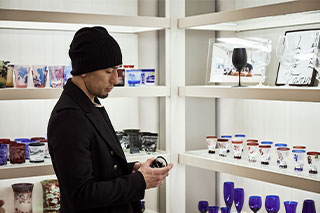
You can also read more about Tajima Glass here.






